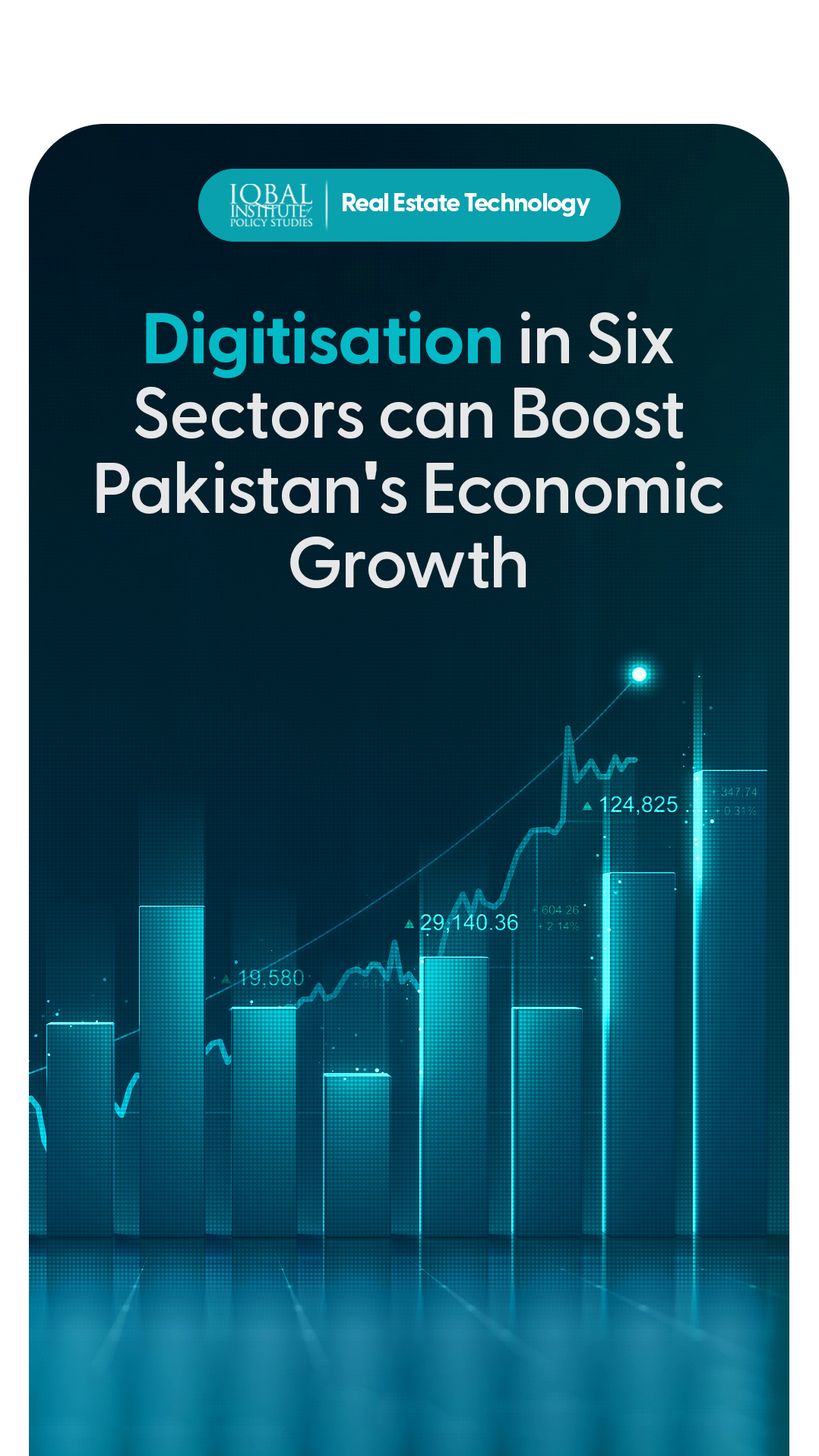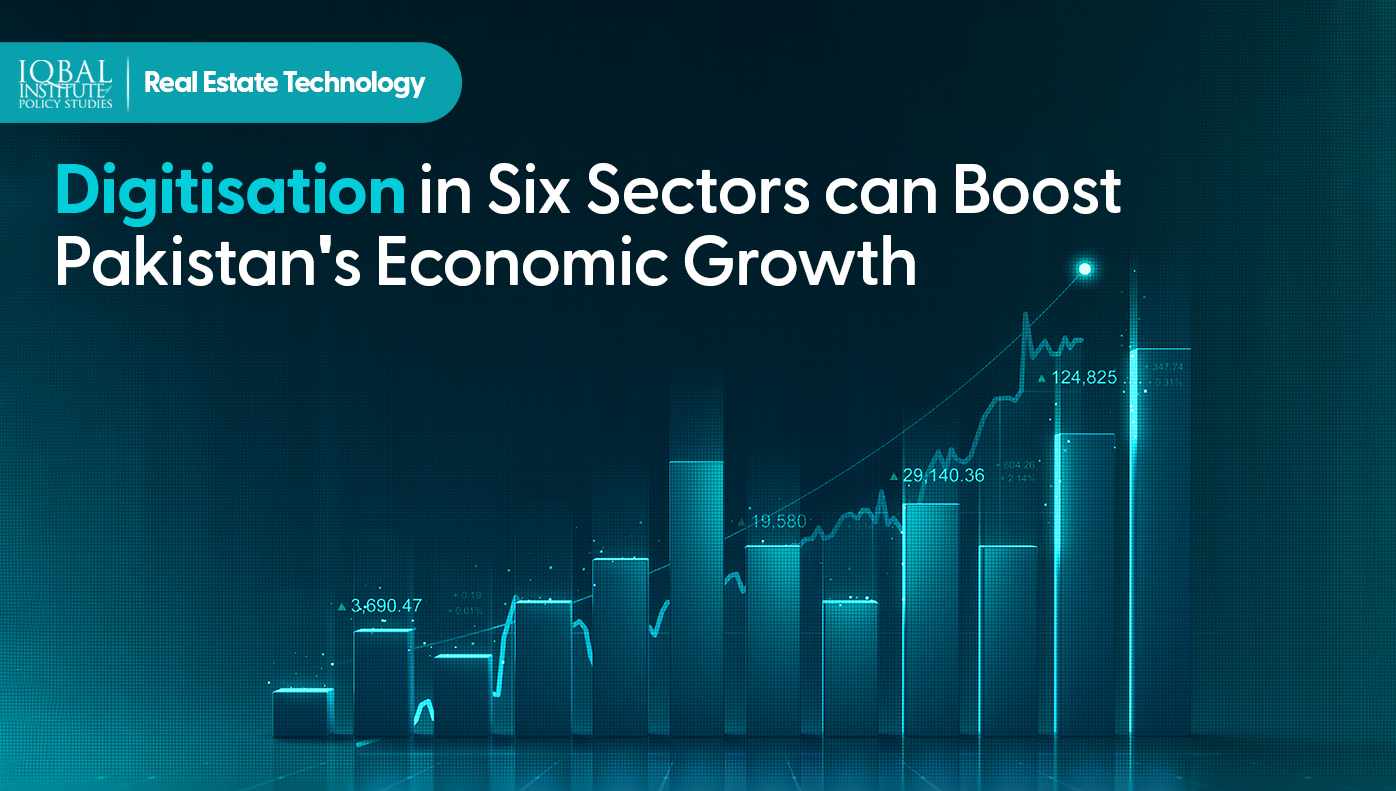During the Pandemic, it has been seen that digitisation can drastically improve services and expand opportunities. For example, introducing digital technologies in trade, finance, and agriculture can create employment opportunities for women and young people. According to a new report by Google, Digitisation can help Pakistan unlock up to Rs 9.7 trillion (59.7 billion USD) in annual economic value by 2030, equivalent to about 19% of the country’s GDP. It drives entrepreneurial innovation, productivity, and regional economic growth.
Pakistan has a thriving technology sector, and promoting digitisation in the following six sectors can project its economy on a growth trajectory. These six sectors are:
1: Healthcare
2: Learning and Education
3: Agriculture
4: Finance
5: Trade
6: Tourism
Healthcare:
During the Pandemic, when people mostly from remote areas could not reach hospitals and get proper treatment, we realised the importance of digitisation in the healthcare industry. Digitising the healthcare sector will improve healthcare services, including software that makes health information more accessible to patients and keeps patient data secure in one place. Through digitisation in the healthcare system, health professionals can monitor ongoing patient health and vitals from home, eliminating unnecessary delays and improving health treatment. A digital health system is the future of Pakistan’s health sector, leveraging intuitive data analysis that saves lives and streamlines operational efficiency for health services across the nation.
Learning and Education
The COVID-19 pandemic has initiated a massive shift to online learning. It has encouraged entrepreneurs to develop internet-based learning tools, leading to a boom in the edu-tech industry. The disruption in today’s digitising world is helping increase accessibility, enhance quality and improve the affordability of education globally. These disruptive and innovative technologies drive the digitising of educational streams, making them more feasible and affordable inside and outside the classroom, reducing the reliance on textbooks, notebooks, and pencils as critical learning tools. However, such initiatives will deliver quality education, improve socio-economic development, and determine the prospects of future generations.
Agriculture
Pakistan being majorly dependent on the agricultural sector for its economic growth, can increase its productivity through digital solutions. These solutions increase farm yields by introducing efficient production management to benefit large populations. It will also address food security and increase incomes in rural areas, making agriculture more resilient to climate change and other risks. It also empowers farmers with information about the latest research in the agricultural sector, from crop improvement techniques to practices for adapting to climate change.
Finance
Small and medium enterprises (SMEs) face high capital costs as a barrier to expansion. Enterprises will easily access various financial services by introducing digital solutions in the financial sector. These include online lending platforms where more favourable terms may be available to e-payment providers. Digital platforms offer several opportunities to vulnerable groups, including women, young people, and the elderly, to expand their economic prospects.
Trade
Digitalisation provides interconnected solutions for warehousing, transport, and delivery of goods based on regional and global supply chains. In this context, Pakistan should embrace cross borders e-logistics platforms to share paperless information and improve efficiency at checkpoints and barriers by adopting automated payment systems for cargo movements. These platforms will also provide interconnected logistics solutions, which can improve trading networks.
Tourism
Tourism has been one of the most adversely affected sectors due to the pandemic. Digital solutions can help reduce difficulties and increase convenience for travelling tourists. By building linkages between stakeholders in the tourism ecosystem, digital platforms can raise awareness of tourism destinations and strengthen marketing and promotion using virtual reality technologies.
In a nutshell, Pakistan is well placed to progress to a fully-fledged digital society. Doing so will allow its citizens to learn new skills for new jobs and spur new investments in the country. This will ultimately help to meet the goals of Digital Pakistan and continue Pakistan’s digital transformation.



Leave a Reply